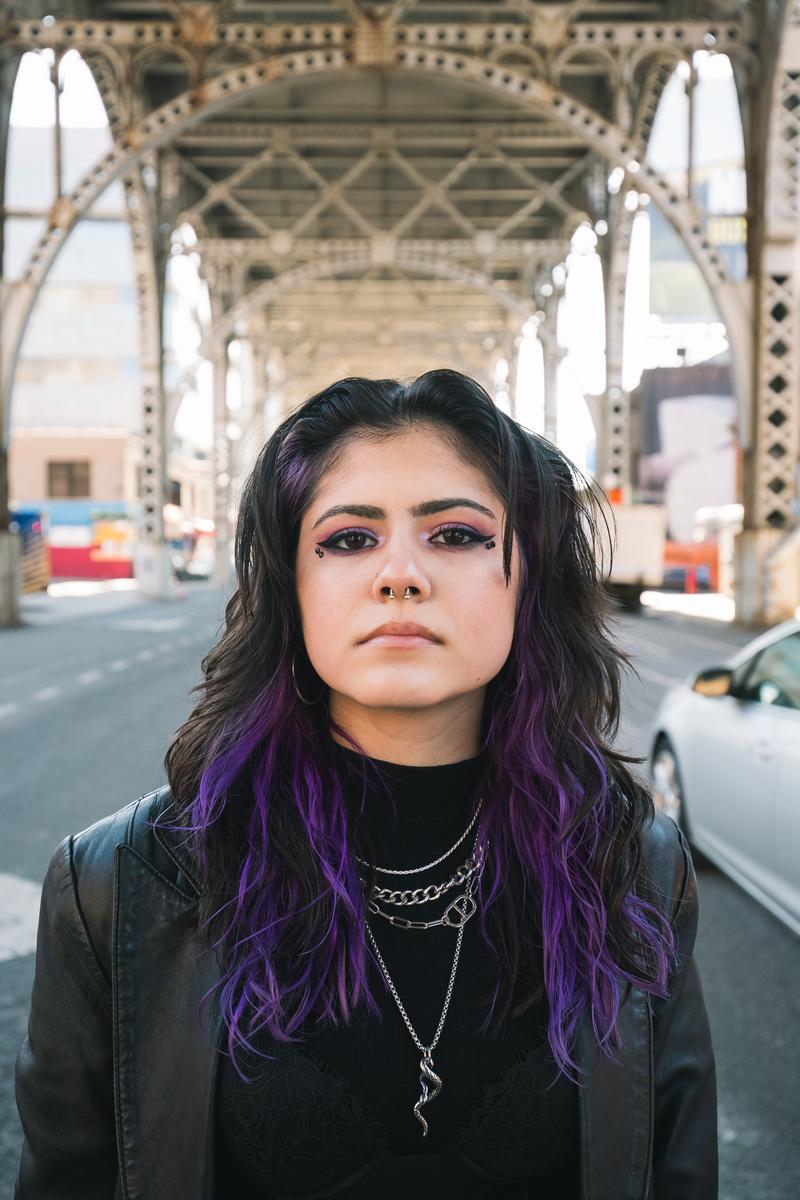[music]
Melissa Harris-Perry: Back with The Takeaway. I'm Melissa Harris-Perry. April is National Poetry Month, and we're talking with some of our nation's young poets.
Isabella Ramirez: Hi, my name is Isabella Ramirez and I'm an 18-year-old poet, and the current 2022 National Youth Poet Laureate of the South.
Melissa Harris-Perry: Isabella, already a winner representing the South region, in a program created and curated by Urban Word, is vying for the top spot as the National Youth Poet Laureate. She'll find out at a big event on May 20th at the Kennedy Center in DC. We asked Isabella how she got into poetry.
Isabella Ramirez: I had always appreciated poetry and specifically spoken with poetry from afar, but I always felt a little bit hesitant to get started on my own. I took that leap of faith my junior year, and I immediately fell in love. One of the main things that made me so drawn to poetry was the community that I found. So many of my peers are some of my biggest inspirations. The people that I was surrounded with and the dialogs that we were able to spark, and just that feeling of connection and empathy-building is what has kept me here. There's something so beautiful, not only about the written aspect, but that performance aspect, and really seeing people get vulnerable on stage and you yourself becoming vulnerable.
Melissa Harris-Perry: Isabella talked about empathy and vulnerability.
Isabella Ramirez: Sane poetry was born out of communities that didn't have any other place to speak about certain things impacting them, specifically Black and brown communities that were enduring policing and enduring a lot of things that they didn't have other spaces to speak about. I think, particularly, for marginalized voices, for minority communities, there have been a lot of silencing of our narratives. I think that in poetry, the reason that there is such a space for vulnerability and empathy is because it is inherently welcoming of those dialogues.
Melissa Harris-Perry: Takeaway. This is Isabella Ramirez reciting her original piece, The Assimilation, American Dream.
Isabella Ramirez: The DMV was not where I had expected. I would be unpacking and my Latina dad, but there I was at 10 years old trying to tell the clerk my ethnicity when my father squeezes my arm and tells me, "We don't look Hispanic." You can imagine my confusion as I looked, am I very much Hispanic-looking Papa, and didn't know why he wanted to hide that his furrowed brows were like the Andes.
Short and prominence among forehead wrinkles that ran deep like [unintelligible 00:02:31]. Even as he spoke to me, his accent was somewhere between the thickness of Amazonian trees and the rain trickling on their leaves, depending on the word. In that moment, he was the equator splitting me into two hemispheres of Ecuadorian el Americana pushing me to stay north. Up until that point, I had thought my whole life that most of the shame of being Latina would come from others.
When I realized my family could only pack as much culture as they could fit into their luggage to make it safely to America, I understood why they left pieces of themselves stood away on shelves and why I came. I understood that the reason my father wanted to hide at the DMV was the same reason mama hated living in Miami for more than just morning traffic, why she didn't buy me my first pair of gold hoops until I was 13, while she told me red lipsticks was a statement only if used with modesty, why my skin was the most Latina thing I was allowed to wear.
That's why I learned Toga was the worst thing I could be because being from del Pueblo was a greater insult to our lineage than any of our attempts at assimilation. When our proximity to whiteness becomes our safety, it's no wonder my family shelters behind light skin and Eurocentrism. We have learned that the American dream doesn't apply to [unintelligible 00:03:49], so we become our own conquistadors and strip ourselves of our indigeneity, split it into test tubes, DNA kits, so only 23 and me [unintelligible 00:03:57].
We would give up gold if it meant a normal life in America, one without the green card jokes, the demand to speak English and go back to your country, the questions of where are you from and know where are you really from, well, without the fear of La migra, the difficulty of getting papers, but the ease of deportation, one without the detention centers only 27 miles from our home.
One without the shame in my identity, one without the hiding and lying and wishing for something more. One without the need to conceal my pride because I am prouder than proud and my family is too. All we ask is for a life where we don't need to hide at the DMV. One where we can blast [unintelligible 00:04:36] on rooftops and yell [unintelligible 00:04:38] and not care, we look to Tonga [unintelligible 00:04:41]. If the [unintelligible 00:04:42] think we're being too loud, I'll have no problem telling me familia, we're not being loud enough.
Melissa Harris-Perry: Many thanks to Isabella Ramirez for sharing her poem with us today. We'll have more young poets throughout the rest of the month of April.
[00:05:00] [END OF AUDIO]
Copyright © 2022 New York Public Radio. All rights reserved. Visit our website terms of use at www.wnyc.org for further information.
New York Public Radio transcripts are created on a rush deadline, often by contractors. This text may not be in its final form and may be updated or revised in the future. Accuracy and availability may vary. The authoritative record of New York Public Radio’s programming is the audio record.




